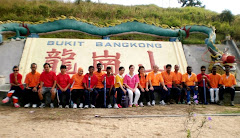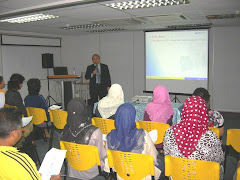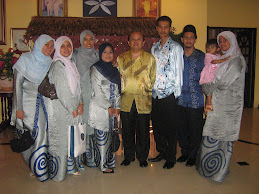
The much eagerly awaited PEAKS Performance Training on Module 2 was attended by 23 senior staff of Open University Malaysia on 21st and 22nd September 2011. It was held at the Sheraton Imperial Hotel, Kuala Lumpur.


Module 2 touched on Self Discovery and Personal Leadership whereby participants were required to take a psychometric profiling test developed by Dr. Shirley Lim. It was a 270-item survey to find out the DNA leadership profile of each participant with a reliability of 0.86 to 0.92.



The first half day started with a review of what was learned during the last training on Module 1 and how each participant has applied what was learned at their respective departments.

Each group was required to present their findings. Everyone shared what they have learned which include:
* Understanding the difference between a Leader and a Manager
* Understanding the meaning of success that is growing oneself versus being significant which is about growing others
* Understanding the factors affecting our performance based on the Iceberg Competency Model - Knowledge and Skills (being what was noticeable by all) versus Attitude, Traits and Motive (the underlying factors) which are hidden but important to realise their importance to an organisation
* Understanding of how to move an organisation from Good the Great
* The three types of people in our organisation - Undertakers, Caretakers, Risktakers
* The four types of personalities - Sanguine, Choleric, Melancholy, and Phlegmatic

Among the things that have been applied after the training include:
* Understanding ourselves
* Understanding others
* Managing ourselves
* Managing others
Prior to the first training we were told to guestimate the number of Undertakers, Caretakers and Risktakers and majority agreed that generally we have 65% undertakers. But after the training and after applying what we have learned from the training, the percentage of undertakers/campers have reduced to probably 30%.

This is because the participants have to learned to understand themselves and their subordinates better and due to this understanding of relationship, weaknesses were rectified and and our relationship becomes better and our subordinates have better outlook of their jobs now.
It is more of managing the underlying factors of the Iceberg Competency Models where participants are more readily to move from success to become significant to their organisation of making others successful.

The module 2 started with the scores given out to each participant from the Psychometric DNA profile carried out. Trainers Mr. Moses has reminded participants about ignoring his girlfriend SARAH (Shock, Anger, Reject, Accept, Help) before reviewing their DNA profile as there is no right or wrong.
Each participant are scored on five facets which include: Purpose, Energy, Affirmation, Knowledge and Sustainability. However, participants were reminded that the score obtained was a reflection of their DNA and not what was seen by others.
Purpose - refers to a personality factor that describes a person's focus and goal orientation.
Energy - defines how people relate to others
Affirmation - associates with human relationships that measures how an individual demonstrates positive declarations of praise, encouragement, and support to others
Knowledge - refers to a person's penchant to process ideas, create strategies and innovate
Sustainability - is a measure of an individual's propensity to handle stressful situations
Hence, the acronym PEAKS derived from these five facets.
Understanding these facets help in developing a person to become conqueror of his own life success with a sense of fulfillment and achievement. It is about helping us to make a "dash" in our lives.
The two-day training ended with a Video Clip presentation entitled: "The Secret". It is based on the Law of Attraction of new thoughts that believe "like attracts like". It is about focusing on the goal rather than the problem. When we set out to achieve something, we focus on getting it. We must believe we can achieve it and put in effort to achieve it.

As in the first training, all participants are reminded to complete their learning log on what they have learned, what they intend to do and how they are going to apply it at their workplace.
Next training is tentatively scheduled in the 3rd week of November 2011.






























2 comments:
A nice summary Dr Richard.....hope the session has benefited everyone.
Thank you En. Repin. Yes we all have fun and have benefited from the training. Time to apply.
Post a Comment